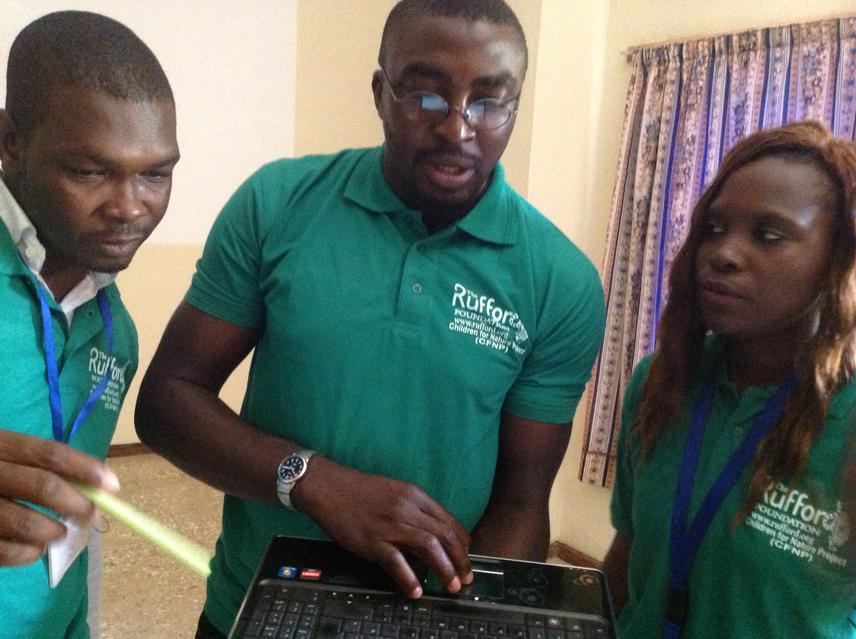Grace Pam
Other projects
18 Dec 2007
Conservation Education for Children in Plateau State, Nigeria: The Children for Nature Project (CNFP) I
13 Aug 2018
Understanding the Drivers of Nature Knowledge, Perceptions and Attitudes in Nigerian Children: Implications for Conservation
The CFNP aims at educating primary schools on nature and its conservation, by encouraging the inclusion of nature education in schools and the training of teachers on both outdoor and indoor nature teaching.

Part of the Team Planning.
CFNP is an attempt at creating an early awareness, interest and passion for nature in young children between the ages of six to twelve. Children are the future of any society and so, by instilling in them a positive outlook towards nature, and teaching them to appreciate the diversity and complex web of life, we believe that the future of biodiversity would be somewhat safeguarded.
To achieve our goals, we carry out several activities that will in the long run translate into knowledge and the right attitudes on nature and its conservation in children. Some of these activities include tree planting events, environmental sanitation activities, nature outings to parks, and zoos, and capacity building workshops and seminars for stakeholders within the teaching environment. We also encourage and help schools establish nature clubs and develop various conservation projects suitable to their peculiar surroundings. The media are also a target group for our project because they are strategic in information dissemination and can help in sensitizing the public about the various aspects of nature conservation that need urgent addressing. We do this by partnering with both print and electronic media outfits in our events and activities. Children learn by doing, and observation, so we add creative angles to the activities by letting the kids express their perceptions of nature using drawings and painting.
It is important to add here that our schools are categorized into two: country schools and city schools, based on the location of the schools. This is important because we also want to study the effects of urbanization on the knowledge and interest of school kids to nature. The long term goal of the project is get nature conservation education to be included in school curriculum and for every school to be actively involved in nature conservation by having an active nature school club.